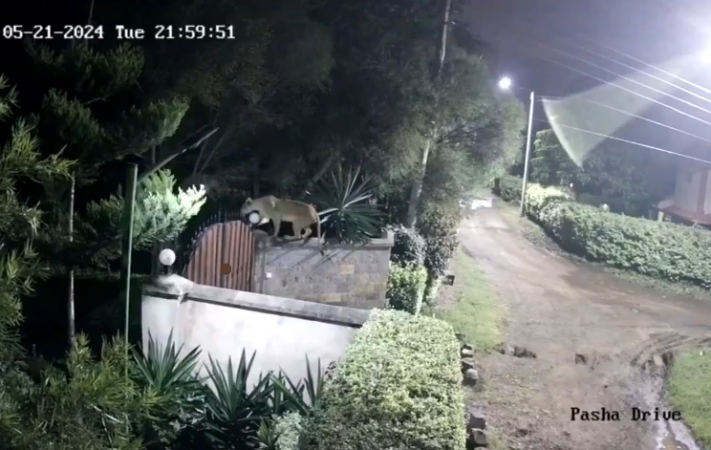
KWS responds to lioness incident in Rongai, ensures ongoing patrols

The Kenya Wildlife Service (KWS) has responded to CCTV footage circulating on social media, depicting a lioness scaling a perimeter wall in a private residence and absconding with a pedigree dog early Wednesday morning.
In light of this, they swiftly dispatched the Human-Wildlife Conflict (HWC) team to the area.

However, the lioness was not found nearby, raising suspicions that she may have cubs hidden elsewhere.
KWS reassures area residents that the HWC team continues to patrol the locality, supported by the more experienced Problem Animal Management Unit (PAMU).
The public is informed that heavy rains, like those recently experienced in Nairobi, prompt herbivores to migrate through the unfenced southern part of Nairobi National Park towards settlements like Rongai, Kitengela, Athi-Kapiti, and the larger Kajiado area.
According to KWS, this migration is attributed to waterlogged grounds and tall grass, which serve as hideouts for predators.
As herbivores move, carnivores such as lions, leopards, and hyenas follow in pursuit of their primary food source. This movement can result in unfortunate incidents, such as the predation of domestic dogs seen in the CCTV footage.
KWS highlights that over eighty per cent of Nairobi National Park’s perimeter is fenced, ensuring much of Nairobi remains safe from wildlife raids.
However, the ongoing rains have caused significant wildlife displacement, heightening the risk of unexpected encounters in wildlife-prone areas.
Residents in these areas are advised to exercise caution, particularly at night.
KWS also urges the public to be vigilant against misinformation, citing recent false reports of lion sightings near the Nairobi Women’s Prison along Lang’ata Road.
In response to such reports, the service dispatched PAMU teams to patrol the areas overnight, but the sightings turned out to be unfounded.
The public is encouraged to report Human-Wildlife Conflict incidents immediately and in detail to the KWS 24/7 toll-free line at 0800 597 000.

